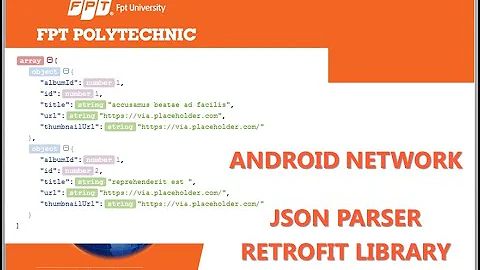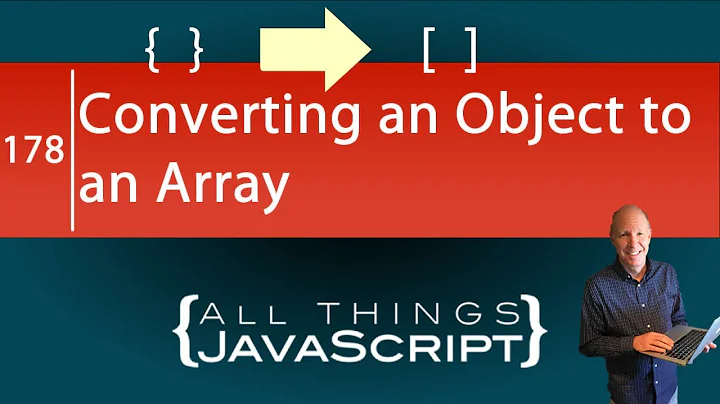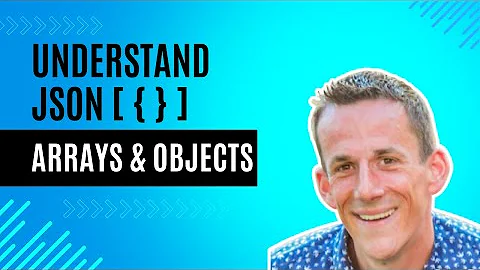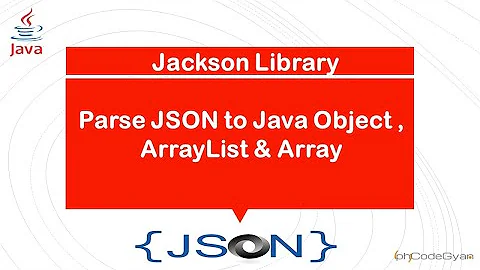How to cast json array to text array?
Solution 1
CREATE or replace FUNCTION json_to_array(json) RETURNS text[] AS $f$
SELECT coalesce(array_agg(x),
CASE WHEN $1 is null THEN null ELSE ARRAY[]::text[] END)
FROM json_array_elements_text($1) t(x);
$f$ LANGUAGE sql IMMUTABLE;
Test cases:
-
select json_to_array('["abc"]')=> one element array -
select json_to_array('[]')=> an empty array -
select json_to_array(null)=> null
Solution 2
try json_array_elements_text instead of json_array_elements, and you don't need explicit casting to text (x::text), so you can use:
CREATE or replace FUNCTION json_array_castext(json) RETURNS text[] AS $f$
SELECT array_agg(x) FROM json_array_elements_text($1) t(x);
$f$ LANGUAGE sql IMMUTABLE;
For your additional question
Why x::text is not a cast?
This is cast and because of this, its not giving any error, but when casting json string to text like this: ::text, postgres adds quotes to value.
Just for testing purposes, lets change your function to original again (as it is in your question) and try:
SELECT
(json_array_castext('["hello","world"]'))[1] = 'hello',
(json_array_castext('["hello","world"]'))[1],
'hello'
As you see, (json_array_castext('["hello","world"]'))[1] gives "hello" instead of hello. and this was why you got false when comparing those values.
Solution 3
For this ugly behaviour of PostgreSQL, there are an ugly cast workaround, the operator #>>'{}':
CREATE or replace FUNCTION json_array_castext(json) RETURNS text[] AS $f$
SELECT array_agg(x#>>'{}') FROM json_array_elements($1) t(x);
$f$ LANGUAGE sql IMMUTABLE;
SELECT (json_array_castext('["hello","world"]'))[1] = 'hello'; -- true!
(edit) Year 2020, pg v12 performance check
We expect that specialized function json_array_elements_text() is better tham user-defined casting... But, how much better? 2 times? 20 times... or only a few percent?
And sometmes we can't use it, so, there are some loss of performance?
Preparing the test:
CREATE TABLE j_array_test AS -- JSON
SELECT array_to_json(array[x,10000,2222222,33333333,99999,y]) AS j
FROM generate_series(1, 1900) t1(x), generate_series(1, 1900) t2(y);
CREATE TABLE jb_array_test AS --JSONb
SELECT to_jsonb(array[x,10000,2222222,33333333,99999,y]) AS j
FROM generate_series(1, 1900) t1(x), generate_series(1, 1900) t2(y);
CREATE FUNCTION ...
Function names:
-
j_op_cast(json) use
array_agg(x#>>'{}') FROM json_array_elements($1) -
jb_op_cast(jsonb) use
array_agg(x#>>'{}') FROM jsonb_array_elements($1) -
j_func_cast(json) use
array_agg(x) FROM json_array_elements_text($1) -
jb_func_cast(jsonb) use
array_agg(x) FROM jsonb_array_elements_text($1)
RESULTS: All results are near the same, the reported differences are perceptible only after some billions (~3610000) of function calls. For few thousands of calls they are equal-perfornance (!).
EXPLAIN ANALYZE select j_op_cast(j) from j_array_test; -- ~35000
EXPLAIN ANALYZE select j_func_cast(j) from j_array_test; -- ~28000
-- Conclusion: about average time json_array_elements_text is ~22% faster.
-- calculated as 200*(35000.-28000)/(28000+35000)
EXPLAIN ANALYZE select jb_op_cast(j) from jb_array_test; -- ~45000
EXPLAIN ANALYZE select jb_func_cast(j) from jb_array_test; -- ~37000
-- Conclusion: about average time json_array_elements_text is ~20% faster.
-- calculated as 200*(45000.-37000)/(45000+37000)
For both, JSON and JSONb, the performance difference is in the order of 20%, so in general (e.g. report or microservice output) it is negligible.
As expected JSON cast to text is faster than JSONB cast, because JSON is internally text and JSONB not.
PS: using PostgreSQL 12.4 on Ubuntu 20 LTS, virtual machine.
Solution 4
Oto's answer was a lifesaver, but it did have one boundary case that had me racking my brain. Due to the lossy nature of the cast, it works perfectly except in the case where you've got an empty json array. In that case you would expect an empty array to be returned, but it actually returns nothing. As a workaround, if you just concatenate the return value with an empty array it will have no affect in cases where there is actually a return, but do the right thing when you've got an empty array. Here's the updated SQL functions (for both json and jsonb) that implement the workaround.
CREATE or replace FUNCTION json_array_casttext(json) RETURNS text[] AS $f$
SELECT array_agg(x) || ARRAY[]::text[] FROM json_array_elements_text($1) t(x);
$f$ LANGUAGE sql IMMUTABLE;
CREATE or replace FUNCTION jsonb_array_casttext(jsonb) RETURNS text[] AS $f$
SELECT array_agg(x) || ARRAY[]::text[] FROM jsonb_array_elements_text($1) t(x);
$f$ LANGUAGE sql IMMUTABLE;
There are a few peculiarities like this one that point to the rough edges at integrating a document database into a mature relational one, but Postgres does an admirable job at handling most of them.
Related videos on Youtube
Peter Krauss
Hello! I use PostgreSQL, PHP, Javascript, jQuery, HTML, XML, XSLT, and ... "Everybody stand back, I know regular expressions!" ─ xkcd 208 2015 consulting on the following areas, LexML (XML for law): see lexML.gov.br JATS (XML for Science): see NISO's Journal Article Tag Suite HTML+RDFa and Web Semantic ... Corporate Social Responsibility ...
Updated on September 15, 2022Comments
-
 Peter Krauss over 1 year
Peter Krauss over 1 yearThis workaround not works
CREATE FUNCTION json_array_castext(json) RETURNS text[] AS $f$ SELECT array_agg(x::text) FROM json_array_elements($1) t(x); $f$ LANGUAGE sql IMMUTABLE; -- Problem: SELECT 'hello'='hello'; -- true... SELECT (json_array_castext('["hello","world"]'))[1] = 'hello'; -- false!So, how to obtain real array of text?
PS: with the supposed "first class citizen" JSONb, the same problem.
Edit: after @OtoShavadze good answer (the comment solved!), a manifest for PostgreSQL developers: Why
x::textis not a cast? (using pg 9.5.6) and why it not generates an warning or an error?-
Oto Shavadzetry
json_array_elements_textinstead ofjson_array_elements
-
-
 Peter Krauss almost 7 yearsThanks Oto! It is not a critique, please ignore, is only a complement of my manifest :-) In SQL, casting
Peter Krauss almost 7 yearsThanks Oto! It is not a critique, please ignore, is only a complement of my manifest :-) In SQL, castingchar(N)produces expectedtextwith no quotations; in an embedded language or driver, casting SQL-textproduces expectedstringwith no quotations, castingstringproduces expected SQL-textwith no quotations... It is the universal expected behaviour... -
 Peter Krauss over 6 yearsHi @JoelB, good enhance of Oto's solution, for empty case. Your solution is elegant, perhaps the best... But perhaps (need to test perfomance!) a faster solution is
Peter Krauss over 6 yearsHi @JoelB, good enhance of Oto's solution, for empty case. Your solution is elegant, perhaps the best... But perhaps (need to test perfomance!) a faster solution isSELECT CASE WHEN $1='[]'::jsonb THEN array[]::text[] ELSE (SELECT array_agg(x) FROM etc) END. The same for json but using$1::text='{}'::text. -
Joel B over 6 yearsOh yeah, it's a total hack and I'm sure your suggestion would be more performant. My main concern was not silently losing data, which this prevents.
-
 a_horse_with_no_name almost 6 yearsI think
a_horse_with_no_name almost 6 yearsI thinkcoalesce(array_agg(x), array[]::text[])would be "clearer" (at least to me) than the concatenation. -
Joel B almost 6 years@a_horse_with_no_name you're exactly right. I keep finding how Postgres has something builtin for every case I could think of. Feel free to edit/update the post with your suggestion.
-
 Peter Krauss over 3 yearsFor readers: this is the best answer (didactic and performance), and was the accepted one until 2020. The new accepted is the same solution with a little augmentation for nulls, so it is the best for your "library solution".
Peter Krauss over 3 yearsFor readers: this is the best answer (didactic and performance), and was the accepted one until 2020. The new accepted is the same solution with a little augmentation for nulls, so it is the best for your "library solution". -
 Peter Krauss over 3 yearsHi Pawel, in general we prefer
Peter Krauss over 3 yearsHi Pawel, in general we preferSQL languagetham PLpgSQL because SQL can be faster, mainlly in inline optiomizations of immutable functions see also this discussion. We also most avoid the use of STRICT, as a PostgreSQL bug in the optimization planner













